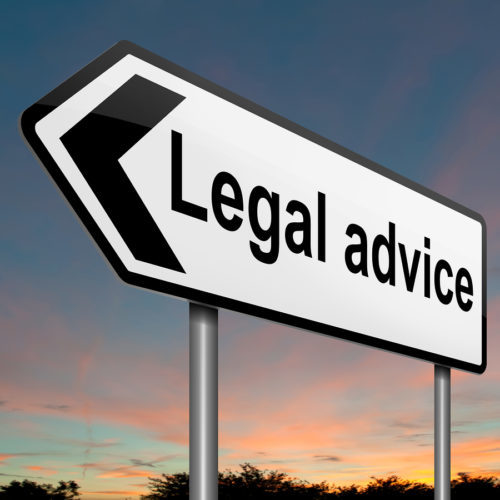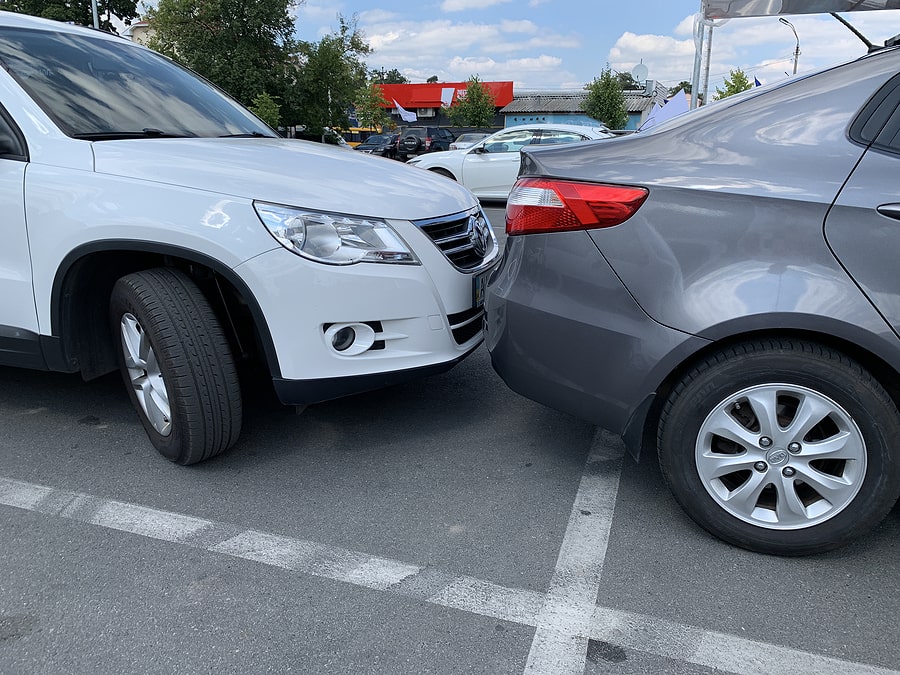Truck accidents are often among the most catastrophic type of vehicle accidents a person can experience. If you were injured in an accident with a negligent commercial truck driver, you likely need help with medical expenses and replacing your vehicle. You may know that you’re in need of an experienced truck accident attorney and you may have contemplated scheduling an initial consultation with one. But what will this consultation involve, and what do you need to bring with you when you meet with an attorney? Read on to learn about how to prepare for your initial consultation.
The Initial Consultation Explained
An initial consultation, also known as a case review, is a service that attorneys provide to prospective clients. It is a chance for you to discuss the details of your case, ask questions, and receive guidance about your legal options. It is also a time for the attorney to determine if they can be of service to you, and for you to decide if you wish to retain the services of this attorney. Many lawyers provide these initial consultations for free—and they work on contingency fees, so they only get paid if they recover compensation for you.
Before You Attend Your Initial Consultation
Before you attend your initial consultation, you will want to be sure you know what type of attorney you need. People who have suffered injuries in a truck accident need the expertise of a personal injury attorney who specializes in truck accidents. The right attorney will also:
- Be licensed to practice law in your state and have an office close enough to you that you can meet with them in person when necessary during your case.
- Have negotiation experience. You will want to know that your attorney has been responsible for negotiating settlements in the past and that their clients were fairly compensated through these settlements.
- Have trial experience. Yes, it is true: the vast majority of cases never make it to trial. However, your attorney should be comfortable representing you in court if it becomes necessary.
Once you find an attorney, be sure to clarify whether or not the initial consultation is free when you call to schedule your consultation to avoid the surprise of being billed for the time.
An initial consultation with an attorney is nothing to be nervous about, but you should prepare for it. You will want to bring a pen and notepad to take notes about what the attorney tells you, and they will want to see any information you have about the case in order to get an idea about the accident and any compensation for which you may be eligible.
Be sure to show up to your consultation on time. Dress professionally—this doesn’t necessarily mean you need to wear a suit, but you definitely want to let the attorney know that you are serious about becoming their client and your case is serious, too. The exception to this rule is if your injuries are so severe that the attorney must conduct the consultation in your hospital room or at your home and you are unable to dress professionally. In such a case, the attorney will most assuredly understand.
Bring Your Bills and Other Documentation of Expenses
The value of your case depends on the medical and property damage expenses you have incurred as a result of the accident. Here is a list of items you will want to gather to show to the attorney:
- All medical bills you’ve received and documentation from every provider you have seen, including paramedics, the emergency room, the hospital, surgical centers, diagnostic centers, primary care provider, specialists, physical therapists, psychologists, and any other care providers who treated you for injuries related to the accident.
- Any documentation that discusses your prognosis or need for future medical treatment.
- Receipts for rehabilitation, adaptive, or accessibility items, like a wheelchair or wheelchair ramps.
- An accounting of time you’ve missed at work due to your injury, including time you’ve spent away from work for medical appointments.
- Pay stubs showing your earnings before the accident and proof of any benefits that you used—such as vacation or sick time—to deal with your injury.
- A journal of the pain you’re enduring, and how your injuries have impacted your quality of life
Bring the Police Report
If you and the attorney agree to work together on your case, the attorney must not only provide documentation of all of the damages in your case but they also need to prove that the other driver was negligent. Additionally, they will attempt to identify other potentially liable parties in the case. There are often multiple liable parties in a truck accident, which may include the company the truck driver works for, as well as the truck driver themselves, and sometimes others. While a police report isn’t absolute proof of liability, the narrative that the responding officer provided can be a powerful negotiating tool during the settlement process.
If you know which law enforcement agency investigated your accident, you can simply call that agency and ask how to obtain a copy of the police report. Many law enforcement agencies provide a way to request and receive a police report online, as well. Once you have received the report, you should read the report for accuracy. If there are major factual errors, you can contact the investigating officer or agency and ask to correct the report or if you can provide information for an addendum.
The information that the attorney needs to see from the police report when evaluating your case includes:
- The exact details of the incident, including the date, the time of day, the location, and the weather at the time of the accident.
- The name and contact information of the responding officer.
- A diagram and description of the accident, based on the officer’s observations and statements by the drivers and witnesses.
- The officer’s preliminary assessment of fault, including any citations they issued.
- The names and contact information of any witnesses to the accident.
- The name of the truck driver and the company they work for.
- Descriptions of the vehicles and insurance information for all parties involved in the accident.
Bring Your Photos From the Accident Scene
Photos are powerful pieces of evidence. If you took photos at the accident scene or someone took them for you, bring those to the initial consultation. Some photos that could help the attorney to evaluate your case include:
- Images showing what the weather and the traffic were like at the time of your accident
- Photos of the damage to your car
- Photos of skid marks, broken car parts or other items showing damage
- Images of any visible injuries that you have
Other Items
There are several other items that you should bring to your consultation, if you have them available. These include:
- Information from any insurance company that has contacted you, including the name and phone number of the individual who called you, when the conversation occurred, and what you discussed. You should also bring emails or letters you’ve received from any insurance company about the accident.
- A copy of the note your doctor provided for your employer if you were told that you shouldn’t do certain tasks upon returning to work due to your injuries.
- Your own insurance information and a copy of your policies.
Bring Your Questions
The initial consultation is not only a time for the attorney to learn about the case, but also for you to learn about the attorney and determine if they are the legal professional you wish to work with. Because time is usually limited in a consultation, it is a good idea to write down any questions you have in advance. While other questions will likely come up during your conversation, here are some example questions you should consider asking:
- How long do I have to file my case (what is the statute of limitations)?
- Who is responsible for compensating me for my injuries?
- What damages might I recover?
- What is the likelihood that my case will settle?
- What is the value of my case?
- How long have you practiced personal injury law?
- How much experience do you have with truck accident cases? How many truck accident cases have you handled, and how many have you settled?
- How much experience do you have with handling cases in which the victim had injuries like mine?
- Are you comfortable with the state and federal regulations involved in the trucking industry? Are you aware of the evidence you need to collect from the trucking company, such as electronic hours of service logs, drug and alcohol testing, and maintenance records, and how to obtain that information?
- How comfortable are you with negotiating with corporate law firms that trucking companies often keep on their payrolls?
- Are you comfortable with looking for additional potentially liable parties, such as the trucking company, the broker or shipper, or a manufacturer of defective parts?
- How experienced is your legal team at conducting truck accident investigations? Do you have the resources to properly investigate? Do you have access to experts such as medical professionals and accident reconstruction experts?
- Do you plan to pursue an accident claim with the insurance companies of all liable parties first? If those insurance companies refuse to offer a fair settlement, are you comfortable with representing me in court?
- What are the strengths and weaknesses of my case?
- How does your firm handle communication with clients? Who is my point of contact?
- Are you the only attorney I will be working with?
- How many clients do you represent simultaneously?
- Will I be informed of all new developments in my case? How often will I be updated?
- How are clients billed for your services and what are the payment options that are available to me?
- Can you provide me with references from past clients?
Am I Obligated to Hire an Attorney After an Initial Consultation? Is the Attorney Obligated to Represent Me?
You are under no obligation to hire an attorney after an initial consultation, and it is not unusual for people to speak with two or more attorneys before making a decision about who they would like to hire to work on their case. Some reasons you may decide not to work with the attorney who provided you with the consultation include:
- He or she doesn’t specialize in the type of accident you’ve had.
- You want an attorney with more experience with truck accident cases.
- Your attorney is only willing to work on a settlement, but doesn’t want to represent your case in court.
- You feel that you are owed more in damages than the attorney says your case is worth.
- The attorney represents many clients at once and you’re afraid your case won’t get the personal attention that it needs.
Likewise, the attorney is not obligated to take your case. Please do not take it personally if the attorney tells you that they can’t provide the services you need. There are many reasons for this, including:
- The attorney doesn’t have the proper expertise to represent you.
- They don’t feel that you will be able to prove that the other party owes you damages based on the evidence you have.
- Their caseload is too full to give your case the attention it needs.
If you and the attorney do decide to work together, they will likely give you documents to sign. Be sure to read these documents carefully and make sure you understand them fully before you sign. Feel free to ask the attorney questions about the documents—they should be willing to answer them, and any other questions you have during your case. Additionally, you should ask the attorney to give you an idea about the next steps in your case. They may need you to provide additional documents and should let you know about the statute of limitations for filing your case if you do need to go to court, and all other mandatory deadlines that you will be required to meet along the way. If you or a loved one could benefit from scheduling a consultation contact the skilled and compassionate Stewart J. Guss Attorney at Law by phone (866) 825-2490 or online. Don’t hesitate. Call Today and determine the right path for you to receive compensation.
1 https://www.americanbar.org/
2 https://statelaws.findlaw.com/texas-law/texas-civil-statute-of-limitations-laws.htm
3 https://www.fmcsa.dot.gov/hours-service/elds/electronic-logging-devices
4 https://www.fmcsa.dot.gov/regulations/drug-alcohol-testing-program





